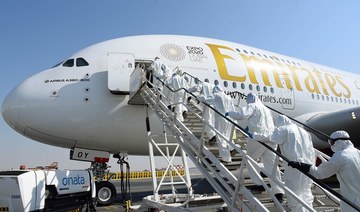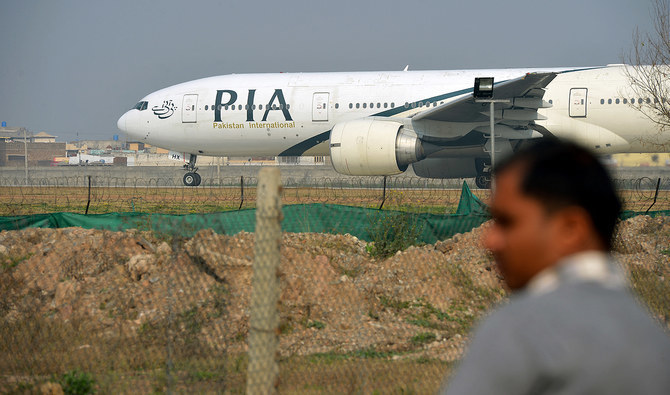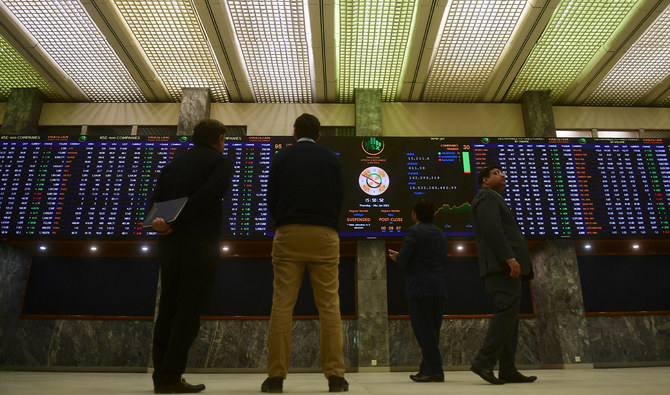PARIS: The coronavirus has battered the air transport sector by grounding planes, resulting in layoffs, bankruptcies and rescue plans.
The International Air Transport Association (IATA) has estimated global airlines will lose $314 billion in 2020 revenues. That’s a 55 percent dive compared to 2019, and air traffic will not bounce back until 2023, the IATA says.
Latin America’s largest airline LATAM, with over 42,000 employees, became the latest carrier to file for bankruptcy on May 26 in the US, under Chapter 11 protection, allowing it to restructure without pressure from creditors, just two weeks after Colombia’s Avianca, with 20,000 staff, did the same.
Cash-strapped giant Virgin Australia also collapsed on April 21, going into administration.
The airline had appealed for a Aus$1.4 billion ($930 million) loan, but the government refused.
The pandemic has also led to the collapse of South Africa’s Comair and South African Airways (SAA), the UK’s Flybe and four subsidiaries of Norwegian Air Shuttle in Sweden and Denmark.
Air Canada plans to lay off at least 19,000 employees. British Airways will shed 30 percent of its workforce, US Delta Air Lines will carry out 10,000 redundancies, while Scandinavia’s SAS will lay off 5,000 jobs.
The damage to the air sector extends beyond the airlines. US plane manufacturer Boeing has announced 16,000 layoffs. In the engine sector, US manufacturer General Electric and the UK’s Rolls-Royce have also slashed 12,600 and 9,000 jobs respectively.
German airline group Lufthansa, meanwhile, announced on May 25 it had struck a $9.9 billion rescue deal with the government, under which Berlin would become its main shareholder.
But two days later the airline group wavered, saying its supervisory board was currently “unable to approve” the deal over fears of over-harsh conditions from EU competition watchdogs.
Also in Germany, charter firm Condor, a subsidiary of bankrupt travel agency Thomas Cook, secured €550 million in loans, underwritten by the state.
France and the Netherlands have rushed to the rescue of Air France-KLM with a plan of between nine and €11 billion.
Most of the big American air companies have asked for support from a massive $2.2 trillion US stimulus package intended to help impacted industries, of which $50 billion is earmarked for the civil aviation sector.
Italy has decided to nationalize Alitalia.
Switzerland has guaranteed €1.2 billion in loans to Swiss and Edelweiss, two subsidiaries of Lufthansa.
New Zealand has loaned some NZ$900 million ($551 million) to Air New Zealand.
Dubai and Turkey have also announced that they will come to the aid of Emirates and Turkish Airlines, but have not yet provided figures.





















